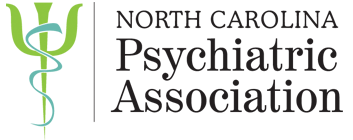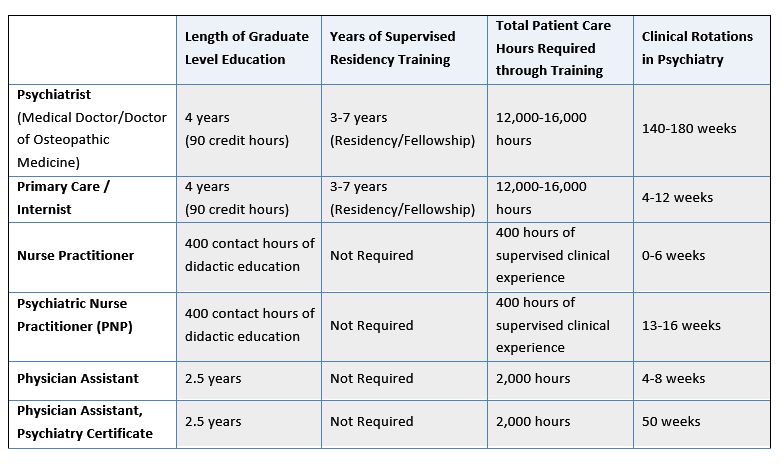- Home
- About
- Foundation
- Advocacy
- Conferences & Events
- Jobs & Classified Ads
- Contact Us
Requirements for Professional LicensureFirst things first, let’s define who these medical professionals are. Psychiatrist: A psychiatrist is a medical doctor (M.D., D.O.) who specializes in mental health, including substance use disorders. Psychiatrists are qualified to assess both the mental and physical aspects of psychological problems. They are licensed by the Medical Boards of the states in which they practice. In North Carolina, that is the North Carolina Medical Board (NCMB). (Source: APA) In North Carolina, Nurse Practitioners and Physician Assistants are currently allowed to bill Medicaid for psychiatric services. The NC Division of Medical Assistance (DMA), the state Medicaid agency, has been considering the requirement for NPs to have psychiatric certification in order to bill Medicaid for psychiatric services. Physician Assistant: A Physician Assistant (PA) is a nationally certified and state-licensed medical professional. PAs practice medicine on healthcare teams with physicians and other providers. They practice and prescribe medication in all 50 states, the District of Columbia, the majority of the U.S. territories and the uniformed services. In our state, they are licensed by the North Carolina Medical Board. (Source: AAPA) Psychiatry CAQ: Certificate of Added Qualifications is a certification available to PAs that requires 150 hours of psychiatry CME, 2000 hours of practice experience in psychiatry, and patient care requirements in the form of an attestation from the supervising physician describing psychiatrist-observed patient case management across a broad range of psychopathology and appropriate treatments. Once the requirements are completed, the Psychiatry Specialty Exam can be taken and, if passed, the Psychiatry CAQ is awarded. This certification is not defined in NC statute, and PAs without certification are allowed by the Medical Practice Act (MPA) to practice psychiatry without such certification. An important consideration in supervising other professionals is a clear understanding of their background, their training, and their experience. Since some standards vary from state to state and since there is some variation in the training, the graph below tries to illustrate the graduate education, period of time training under supervision, total patient care hours for all types of patients, and actual clinical experience in treating psychiatric patient required for licensure.
As shown above, there is significant disparity in training and supervised experience among those who treat patients with psychiatric illnesses —from psychiatric physicians and NP/PAs to non-psychiatric physicians and NP/PAs. Psychiatrists are required to have years of training and supervised practice in order to receive a medical license. In addition, psychiatrists are trained in general medicine prior to their specialty training. Traditionally, the training for NPs and PAs has been primarily medical in nature, although there are programs that provide additional training and certification in psychiatry. Medical and Nursing Board Requirements >>
Return to Main Page |

